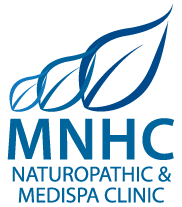Dear Dr Diana,
Are their any current treatments or suggestions for anxiety?
Anxiety is an unpleasant complex combination of emotions often accompanied by physical sensations such as heart palpitations (irregular heart beat), nausea, angina (chest pain), shortness of breath, tension headache, and nervousness.
Anxiety can also worsen many pre-existing medical conditions, such as ulcers, hypertension (high blood pressure), asthma, and chronic obstructive pulmonary disease (COPD). Anxiety may also be associated with mitral valve prolapse (condition where the mitral valve does not close properly), chronic fatigue syndrome (CFS), sleep apnea, irritable bowel syndrome (IBS), and chronic (long-term) tension headaches
INTEGRATIVE THERAPIES
Strong scientific evidence:
Kava: Kava kava (Piper methysticum) is a shrub from the South Pacific islands that has been used for centuries to produce calming effects in humans. Studies have found moderate benefit of kava in the treatment of anxiety, and preliminary evidence suggests that kava may be equivalent to benzodiazepine drugs such as diazepam (Valium®). In one human study, kava’s effects were reported to be similar to the prescription drug buspirone (Buspar®) used for generalized anxiety disorder (GAD). However, a recent study found no effect in generalized anxiety disorder. The kava supplement should be standardized for best results.
Hypnosis is associated with a deep state of relaxation. Several studies support the use of hypnosis to reduce anxiety, particularly prior to dental or medical procedures, or in the management of phobias. Early evidence suggests that these effects may last for up to three years with benefits reported in children and adults. Several promising studies in adults and children report that dental anxiety related to dentist visits can be reduced with the use of hypnotherapy. Benefits may be long-standing (measured at up to three years). In addition, several studies report improvements in the severity and frequency of tension headaches following several weekly hypnosis sessions. Early research suggests that hypnosis may be equivalent to other relaxation techniques, biofeedback, or autogenic training.
.In addition meditation may help healthy people reduce the effects of stress. More studies are needed to further examine the dynamics of stress and meditation, but meditation may be recommended as a general health-promotion activity
Psychotherapy is an interactive process between a person and a qualified mental health professional (psychiatrist, psychologist, clinical social worker, licensed counselor, or other trained practitioner). Psychotherapy, especially cognitive behavioral therapy, may be of benefit in generalized anxiety disorder or panic disorder. Treatment may also include prescription medication in some cases
Acupressure, or shiatsu, has been used in China for thousands of years for health and healing. Preliminary clinical trials suggest that acupressure may significantly reduce general and pre-operative anxiety. However, these studies have been small and poorly designed, warranting better-quality research. With proper training, acupressure appears to be safe if self-administered or administered by an experienced therapist
Dr Lorenzo Diana ND
Doctor Of Naturopathic Medicine

